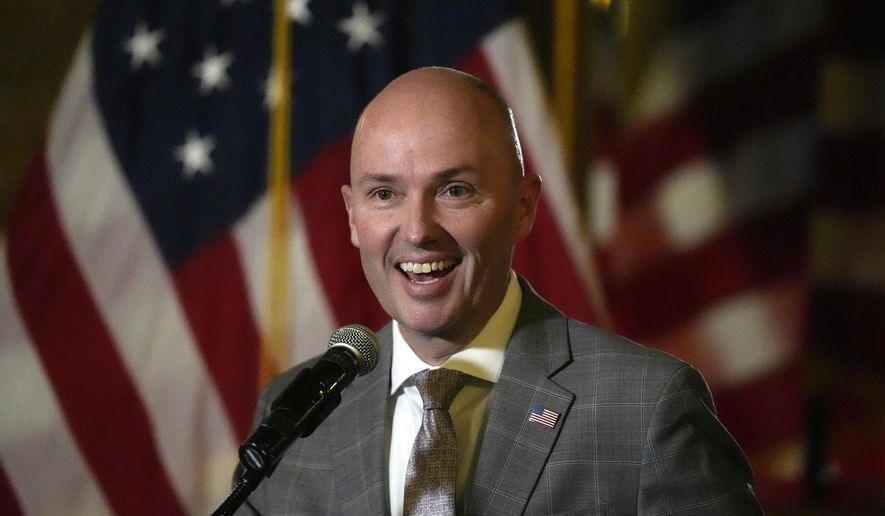OPINION:
Aside from the bar on quartering British troops in one’s home, nothing in the Bill of Rights gets less respect than the 10th Amendment. Utah earlier this year decided to do something about that by reasserting the Beehive State’s power over all matters “not delegated” to the federal government by our founding document.
The Legislature has enacted the Utah Constitutional Sovereignty Act, giving lawmakers the ability to prevent state employees from assisting Uncle Sam in exercising any federal law, executive order or agency dictate that “infringes upon a power or right reserved to the state by the Tenth Amendment to the United States Constitution.”
The Legislature itself would be the judge of what qualifies through a deliberative process. A concurrent resolution would have to be approved by two-thirds of the members present in both the state House and Senate before any action could be taken.
In signing the scheme into law, Gov. Spencer Cox, a Republican, explained: “Balancing power between state and federal sovereignty is an essential part of our constitutional system. This legislation gives us another way to push back on federal overreach and maintain that balance.”
Mr. Cox is chairman of the National Governors Association, where he promotes the message “disagree better” to his colleagues. Utah’s new method of signaling displeasure with federal initiatives is certainly a more cordial process than the way Democratic mayors, for instance, declare their jurisdictions “sanctuary cities.”
In 2017, then-Gov. Andrew Cuomo signed an executive order declaring New York a sanctuary state and prohibiting federal agents from making immigration arrests on state property. That same year, then-California Gov. Jerry Brown enacted Senate Bill 54, a law barring state employees from “assisting immigration authorities” from the federal government.
Democrats won’t mention their own history of immigration law nullification when complaining about the constitutionality of what Utah is attempting to do.
Progressives have also pushed just about every blue state into adopting the National Popular Vote Interstate Compact. Maine last week joined the coalition pledging, in effect, to bypass the Electoral College and allow voters in California and New York to decide the outcome of elections.
Tension between the states and Uncle Sam is not new, and occasionally, it can get violent. In 1832, South Carolina declared federal agricultural tariffs null and void in the state, threatening to secede if any attempt at collection were made. President Andrew Jackson responded with a proclamation vowing to stamp out dissent with federal troops.
South Carolina backed down, but so did the feds. Compromise congressional legislation rolled back the tariffs over the course of several years.
Utah has created a framework for a public debate on the federal policy requiring the aggrieved to make specific findings about what the feds are trying to do, and why it isn’t legal. Utah consistently pays more in federal taxes than it receives in federal aid, which should provide a bit of extra leverage.
The second any real dispute goes to a federal judge, however, this law will be rendered little more than an airing of grievances. But that’s OK. As it stands, Washington bureaucrats have little incentive to pay attention to the needs of smaller states.
Forcing the feds to justify themselves in court seems to be a fair way to encourage them to disagree better.




Please read our comment policy before commenting.